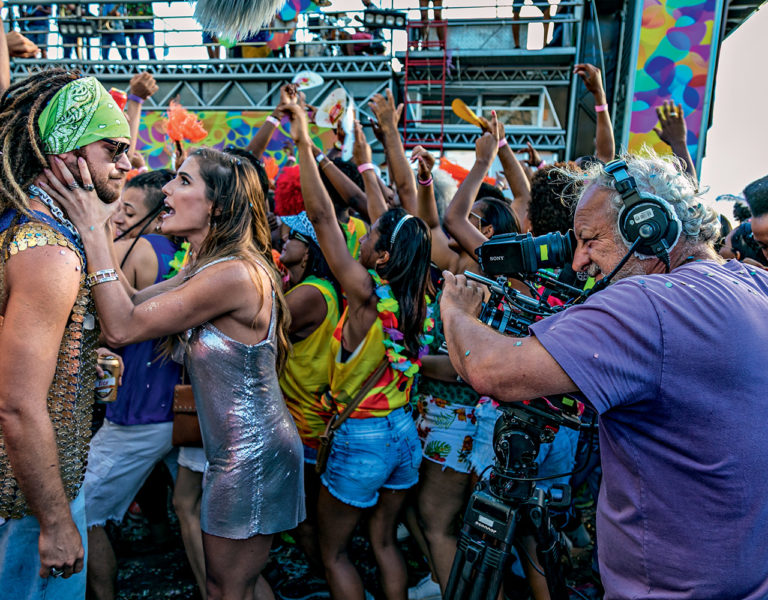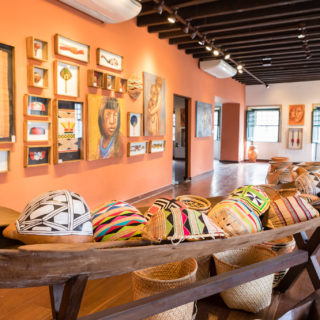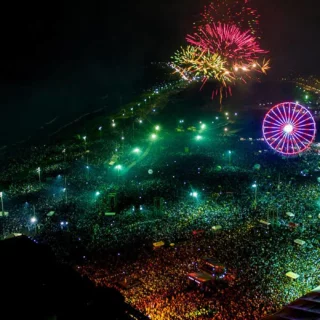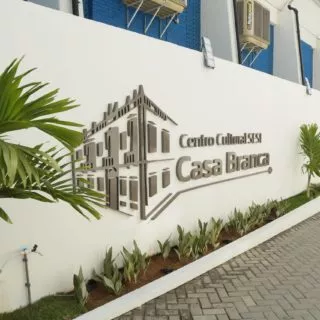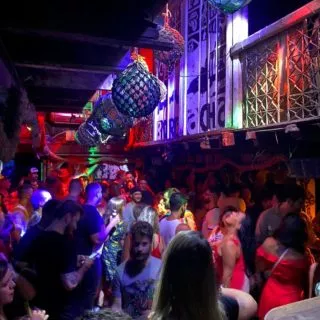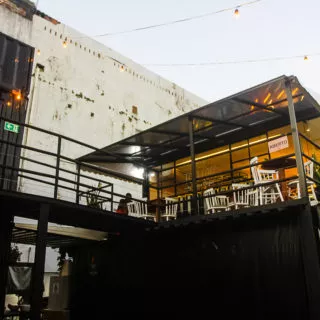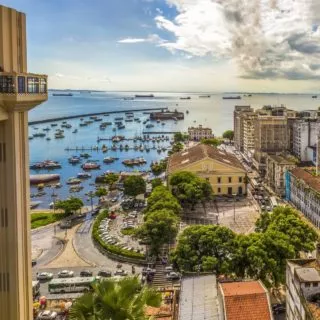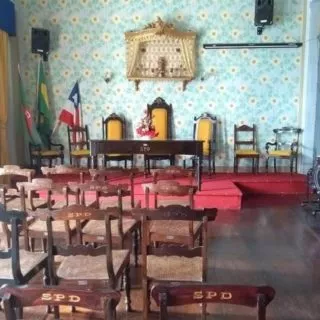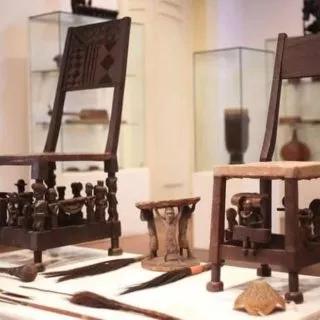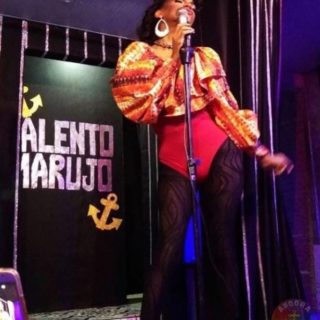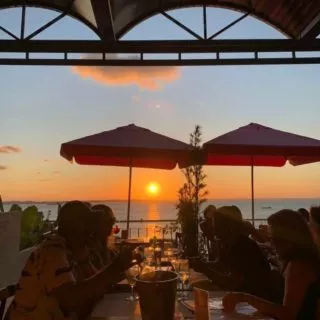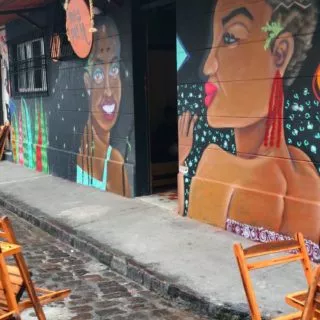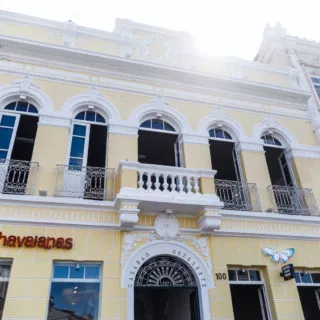
Bahian capital attracts the attention of soap opera authors of all kinds: from period to contemporary ones
Since Verão Vermelho, by Dias Gomes, exhibited between 1969 and 1970, Bahia has lent its main landscapes to soap operas and miniseries, mainly from Globo. Salvador, its capital, is among the favorite scenarios of filmmakers.
The most recent plot that had the palm oil land as its background was Segundo Sol (2018), which immersed itself in the local culture, showing beautiful landscapes, sounds, flavors and various aspects of Brazil’s first capital. But do you remember other plots that were recorded in Salvador?
We prepared a list with ten soap operas that had the city as location and that presented a little more of Salvador’s history to the country. Check it out!
Segundo Sol (2018)
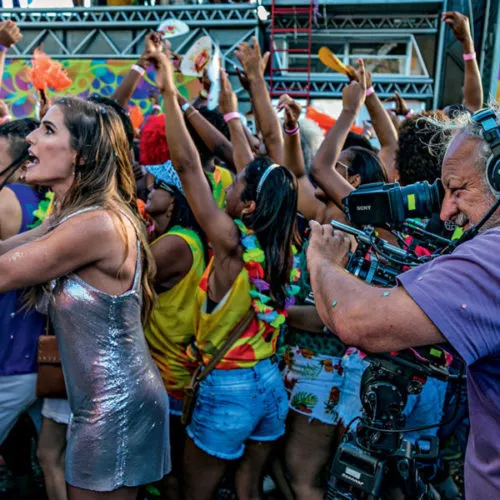
Salvador city was one of the main scenarios of the soap opera Segundo Sol, which was on air most of 2018 on Globo. With its historic buildings, seascapes and cultural elements, the territory of Salvador enriched the story by João Emanuel Carneiro, which featured actors such as Vladimir Brichta, Giovanna Antonelli, Deborah Secco and Adriana Esteves.
Capoeira, the rivalry between Bahia X Vitória and gastronomy (acarajé, pãozinho delícia, palm oil, etc.) were just a few traces of the local culture that were taken to the screens. Some of the scenes were recorded in the capital of Bahia, in neighborhoods such as Barra and Pelourinho. Cruz do Pascoal, a monument that is a landmark of Santo Antônio Além do Carmo, appeared in many of the scenes in the soap opera. In fact, most of the characters lived in this neighborhood.
Beautiful images of the local landscapes and tourist spots were made, as well as other not so well-known spots such as the staircase at the Third Travessa Ademário Pinheiro, in Nordeste de Amaralina, which appeared at the opening of the soap opera.
Velho Chico (2016)
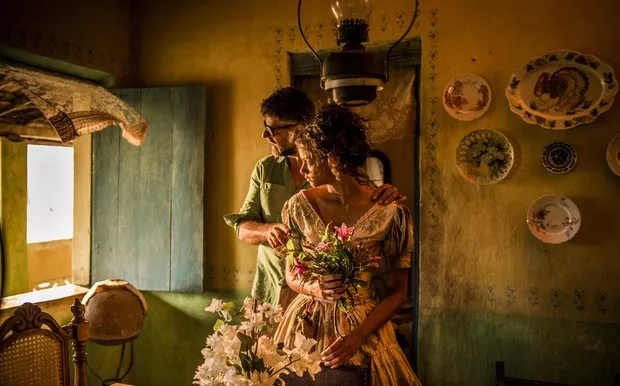
Defined by the director as a Shakespearean family saga, Velho Chico tells a love story framed by social criticism. The plot begins in the late 1960s, when Afrânio, son of the powerful Colonel Jacinto, is forced to return from Salvador to the fictional Grotas de São Francisco, to take his father’s place, who commanded local politics and economics. The soap opera has few scenes recorded in Salvador and many recorded in the northeastern interior.
In love with Iolanda, an attractive singer of Spanish origin, but forced by his bitter mother Encarnação – who still suffers from the loss of her eldest son, who died in the waters of São Francisco – Afrânio sets out on a trip through the region to reaffirm alliances that his father kept. On his trip, he meets Leonor, who ends up stoking his desire. The girl’s father forces them to marry. Leonor is received with contempt by Encarnação, for coming from a low class.
O Canto da Sereia (2013)
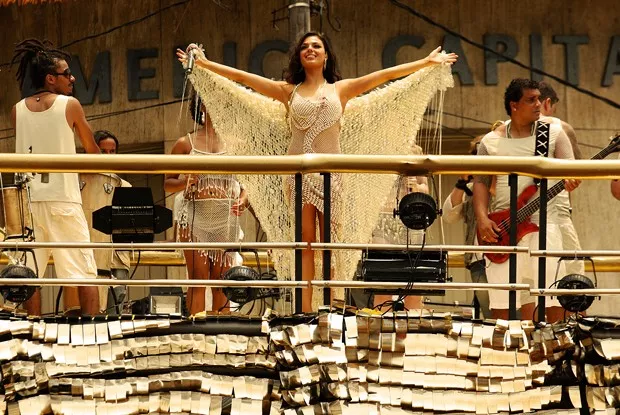
Based on the book by Nelson Motta – who, by the way, was the musical producer of the first soap opera in Bahia, Verão Vermelho – O Canto da Sereia was a miniseries that looked like a soap opera, which had four chapters and was shown by Globo in 2013.
With Isis Valverde, Marcos Palmeiras and Bahians João Miguel and Margareth Menezes, the work was recorded in the last quarter of 2012 in places like Palácio Rio Branco (Municipal Square), Farol da Barra, Feira de São Joaquim, Praça Castro Alves and Pelourinho, among other sights in Salvador.
In the plot, the new pop muse and Axé queen, Sereia, is murdered on top of the trio elétrico on the Tuesday of Carnival in Salvador. The plot involves suspense, humor and romance.
Paraíso Tropical (2007)
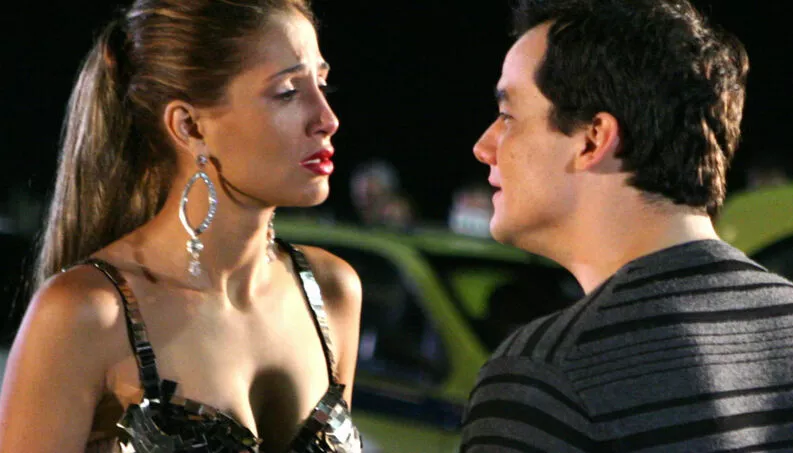
With Fábio Assunção and Alessandra Negrini on the front line, alongside the villains played by Camila Pitanga and Wagner Moura, Globo’s nine o’clock-soap opera, Paraíso Tropical, had locations in Mercado Modelo, Elevador Lacerda and Pelourinho (in Salvador).
The plot, written by Gilberto Braga and Ricardo Linhares, showed sex tourism in Rio de Janeiro with the luxurious Hotel Duvivier as a backdrop, located in the Copacabana neighborhood. In the story, executive Daniel Bastos (Fábio Assunção) is the favorite of the powerful businessman Antenor Cavalcanti (Tony Ramos), owner of Hotel Duvivier, to take over his business. However, another executive of the group, Olavo Novaes (Wagner Moura), Antenor’s nephew, is very jealous of Daniel and does everything to harm him and win his uncle’s trust so that he can succeed him.
Everything changes when Daniel takes a trip to the Northeast to resolve the construction of a Cavalcanti Group resort and ends up meeting the honest Paula (Alessandra Negrini), with whom he falls in love. Paula is the daughter of Amélia (Susana Vieira), a pimp who runs a brothel in the place where the resort will be built.
Porto dos Milagres (2001)
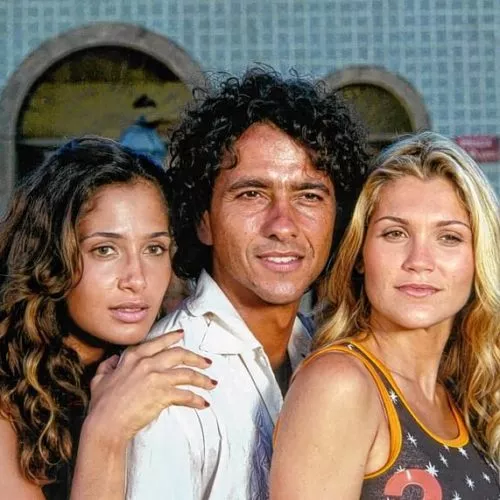
With Antônio Fagundes, Flávia Alessandra and Marcos Palmeira, the soap opera Porto dos Milagres took the production team and actors to Ilha de Comandatuba (Una) and Canavieiras, in southern Bahia. Some scenes were also recorded in Salvador.
Free adaptation of Sea of Death and The Discovery of America by the Turks, by writer Jorge Amado, Porto dos Milagres has a political plot, which contrasts the simple fisherman Guma (Marcos Palmeira), a representative of the people, to the power of the unscrupulous Félix (Antonio Fagundes) and his ambitious wife, Adma (Cássia Kis).
The story takes place in the fictional city of Porto dos Milagres, located in the Recôncavo Baiano region and formed by two distinct social classes: the Porto-Milagrense bourgeoisie, with their traditional families, installed in the upper part of the city, and the poor residents of the pier port, inhabitants of the lower part. The local economy basis is fishing, but the city is also one of the contraband entrances in the country. Mythology and religiosity are present in the plot through the figure of Iemanjá, the “Queen of the Sea”, who, in a fantastic way, influences the inhabitants lives. The story is by Aguinaldo Silva and Ricardo Linhares.
Renascer (1993)
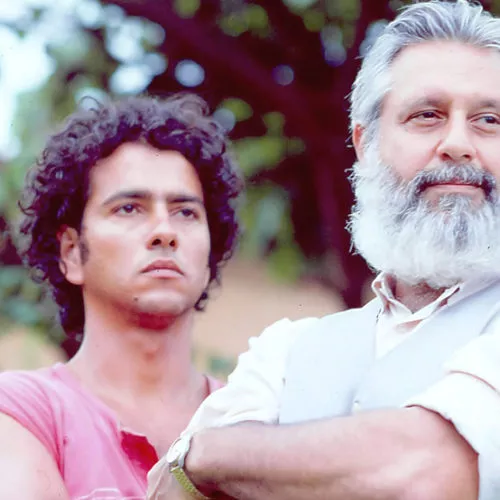
With Antônio Fagundes, Adriana Esteves and Marcos Palmeira, the soap opera Renascer showed the Cocoa Region and the farms in Ilhéus. There were also some chapters recorded in Salvador, Bahia’s capital.
The soap opera narrates José Inocêncio’s (Antônio Fagundes) saga, a farmer in the cocoa zone. When he arrives at the region where he will make his life, he sticks a machete at the feet of a leafy jequitibá. This gesture becomes the symbol of his courage and the dream of becoming eternal. He falls in love after the boi-bumbá passes through his farm, marries Maria Santa (Patrícia França) and becomes the father of four children: José Augusto (Marco Ricca), José Bento (Tarcísio Filho), José Venâncio (Taumaturgo Ferreira) and João Pedro (Marcos Palmeira), the youngest, whose birth is accompanied by the death of the mother, due to complications during childbirth.
The fact makes Zé Inocêncio develop a hateful relationship with his son. This disagreement is what drives all the plots of the history. They accelerate when Inocêncio, already in his fifties, conquers and marries João Pedro’s girlfriend, young Mariana (Adriana Esteves). This is the granddaughter of his greatest opponent in the past, Belarmino (José Wilker), murdered in a mysterious way, with suspicions falling on Inocêncio himself.
Terras do Sem-Fim (1981)
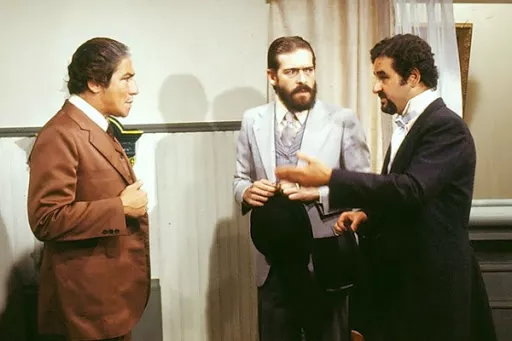
Written by Walter George Durst and directed by Herval Rossano, Globo’s soap opera, Terras do Sem-Fim, was based on the novel of the same name (The Violent Land) by Jorge Amado. The plot revolves around the exploration of cocoa in the city of Ilhéus, in Bahia.
Many adventurers leave Salvador and inland cities for the “endless land” on Bahia coast. Among them is the adventurer João Magalhães (Cláudio Cavalcanti), a cheat card player and fake engineer. The soap opera shows the conflict between two large landowners, Colonel Horácio (Jonas Mello) and Sinhô Badaró (Carlos Kroeber). The work has scenes recorded in Salvador and is a good choice for those who want to get to know Jorge Amado better.
Rosa Baiana (1981)
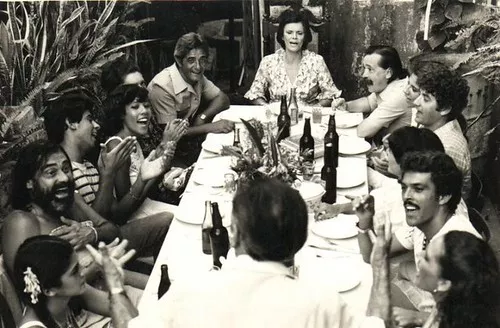
Aired by the former TV Bandeirantes in 1981, the soap opera Rosa Baiana was entirely shot in Bahia. With Gianfrancesco Guarnieri, Ana Maria Magalhães and Regina Dourado, the plot was set in Salvador and in the cities of Recôncavo Baiano.
The story, which highlighted oil production, showed social inequality and also criticized society at the time. Itapuã neighborhood was one of the scenarios of the soap opera.
Gabriela (1975)
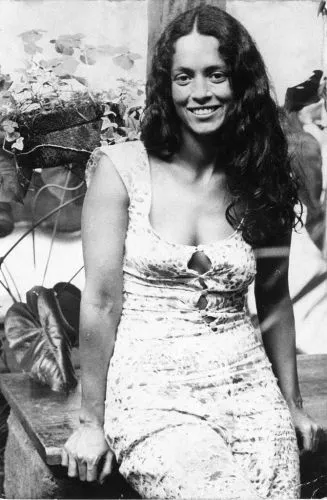
One of the most famous soap operas recorded in Bahia, Gabriela has Ilhéus as the main scenario. But the plot also had some scenes shot in the Bahian capital. Adapted from the book by Jorge Amado, Gabriela, Clove and Cinnamon, the plot portrayed the life of Gabriela, a simple girl from the Bahian hinterland, who went to Ilhéus to escape the northeastern drought.
A suffering girl, but very happy, she seduced men. The soap opera showed the love of Gabriela (Sônia Braga) with a foreigner who did not accept her behavior, sometimes naive, sometimes madly sensual. Gabriela was a tough and daring brunette, who walked barefoot and with extremely short dresses, and she was also very hardworking.
Verão Vermelho (1969)
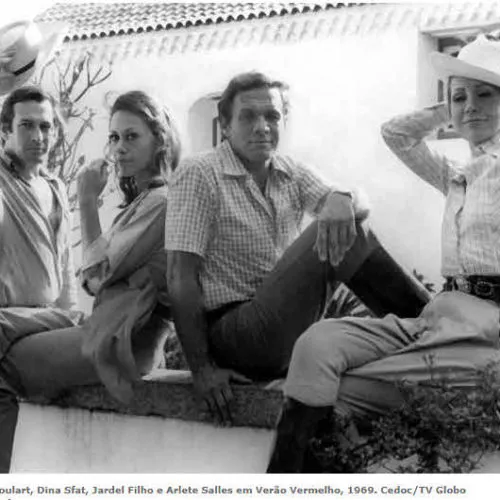
The first ten o’clock soap opera on Globo, Verão Vermelho was set in Bahia and was written by Dias Gomes. The plot begins at the Yacht Clube da Bahia, with the characters Adriana (Dina Sfat) and Carlos (Jardel Filho), who used to keep up appearances. Unhappy parents of Patrícia (Maria Cláudia), they celebrate their daughter’s 15th birthday. Undecided about the separation, they only make a decision when Flávio (Paulo Goulart) appears in the plot and “shakes” the wedding.
Verão Vermelho highlighted local popular culture, with its parties, capoeira circles and candomblé. The work brought up controversial issues such as racial prejudice and divorce (not legalized at the time). The soap opera is set in All Saints Bay, in Bahia’s capital. Some scenes, like the one of the final chapter, on a trio elétrico, were recorded in Salvador.
The soap opera also showed the Historic Center and the famous Casa das Sete Mortes, which received its name due to the homicides that occurred there in the year 1755. At the time, the mansion was closed and was shrouded in mystery and mysticism.
The actress Arlete Salles, who played Selma, said that, in the recording of her first scene in Bahia, held in a sloop, she fell into the sea and had to be rescued by Jardel Filho, who gave life to Carlos, since she didn’t know how to swim.
By Jorge Gauthier
Journalist

